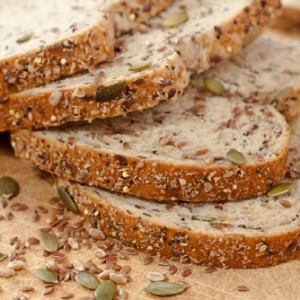Calorie counting – what you need to know!
“A calorie is the amount of heat energy needed to raise the temperature of 1 kg of water 1 degree Celsius” – www.nanp.org 2012
We’ve been brought up in a society that is seemingly obsessed with calories, a unit of ‘measure’ devised by American chemist Wilbur Olin Atwater over 100 years ago.
 Since it’s development, society, government, health agencies and advertising companies wanting to promote their product and encourage bigger and better sales, tell us that ‘Low Fat’ and ‘Low Calorie’ diets are the best approach to weight loss.
Since it’s development, society, government, health agencies and advertising companies wanting to promote their product and encourage bigger and better sales, tell us that ‘Low Fat’ and ‘Low Calorie’ diets are the best approach to weight loss.
Encouraging us to count calories, read labels, go for the ‘Light’ options and burn off ‘treats’, after all 3,500 calories eaten in excess = 1 pound of weight gain, simple, right? It would seem logical, 1g of fat has 7 calories while 1g of carbohydrate has only 4, therefore reduce the fat and you eat fewer calories, thus losing weight. Perhaps not…
What if I were to tell you that this is not entirely true, our bodies metabolize food a lot differently than heating 1kg of water by 1 degree. How a food is harvested, cooked, whether it is eaten with certain other foods, and the body and health of the person eating it, are all variables which need to be considered.
One study gave cheese sandwiches to 2 participants, both of equal calorie content, yet one was prepared on white bread with processed cheese, the other on wholegrain with cheddar cheese, both sandwiches contained similar carbohydrate, protein and fat content also.
The results?
Those who ate the wholegrain sandwich burned 50% more calories in simply digesting and absorbing the unprocessed food, 138 calories burned versus 74 to digest and absorb the more processed sandwich.
The reason?
In part..fibre! Fibre slows down the rate at which food is digested and passed through our systems. Foods high in fibre have less impact on blood sugar levels than more processed foods.
 Diets high in fibre keep you feeling fuller for longer, thus, preventing mindless munching on ‘Low Cal’ treats after your processed cheese sandwich did little to fill you.
Diets high in fibre keep you feeling fuller for longer, thus, preventing mindless munching on ‘Low Cal’ treats after your processed cheese sandwich did little to fill you.
Considering this, we really need to look at our diets as a whole, not just calorie for calorie, when we eat foods full of the nutrients our bodies need we don’t go in search of more, continually eating junk foods yet never feeling full. The age old tale of having 2 biscuits because they’re ‘Low Calorie’ is a classic example!
My advice is simple:
- Choose unprocessed, whole foods where possible
- Opt for whole grains over white when choosing breads, rice, pastas and wraps
- Choose fruits for snacks in place of biscuits, to increase fibre intake
- Increase other forms of carbohydrates for energy such as lentils and sweet potatoes
“You can lose weight by changing the quality of what you eat, even if you don’t change the quantity” – Patrick Holford, leading UK Nutritionist.
After reading this quote, what if you were to minimise this advice of counting calories? I can see fear etched on faces across the globe.
This fear is a result of orthodox rules that society has ingrained upon us, but consider this, since the introduction of the low calorie way of living some 40 years ago, obesity levels have sky rocketed to the number one preventable cause of death today.
Make the change this week, and let’s get back to eating proper wholesome nutritious foods!
LISA’S TIP: There is a fabulously motivating and inspiring video out at the moment on health and the world’s obesity crisis, it can be viewed online until March 31st 2013, catch it here http://www.hungryforchange.tv/
Short URL: https://newrytimes.com/?p=29994













